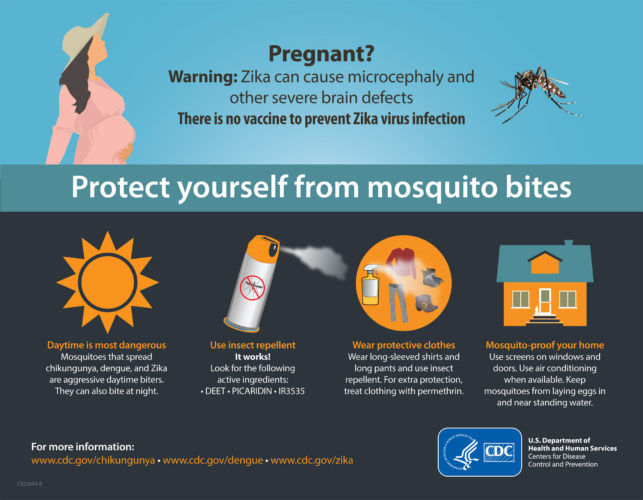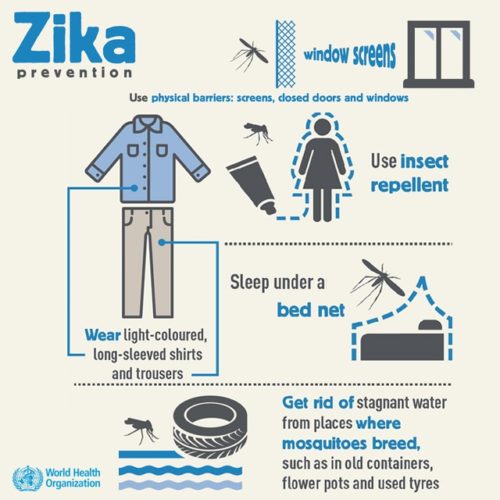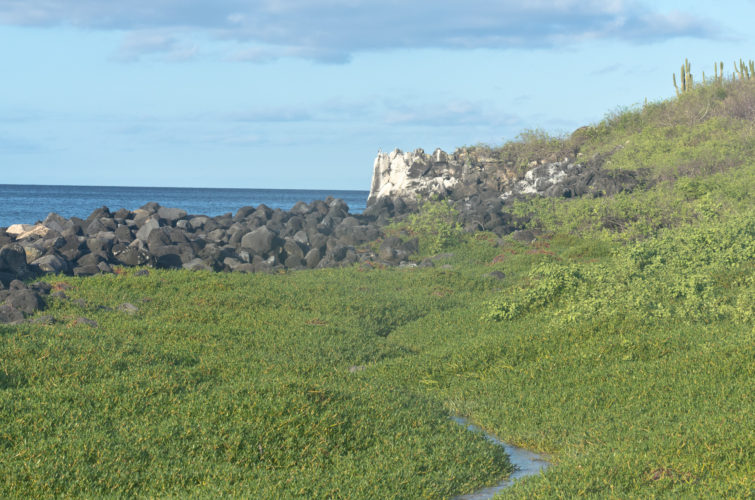2022 Update: There were no reported cases of Zika Virtus in Ecuador, or the Galapagos Islands from 2019-2021. Always check with your local health officials before traveling, but for now Zika Virus is not an issue in the Galapagos.
Over the past many months the Zika Virus has been in the headlines. Like other mosquito-borne diseases and viruses, dealing with Zika will require travelers to take necessary precautions to ensure they have a safe and memorable vacation to the Galapagos Islands, Ecuador or Peru.
We’ve put together some helpful information and travel tips about the virus. Take a look at some commonly asked Zika virus questions below. If you’re planning to travel on any Galakiwi tour, we strongly advise you to visit your travel doctor or family doctor before leaving home to make sure you have the latest information.
What is Zika Virus?
Zika is a mosquito-borne virus transmitted primarily by the female Aedes albopictus and Aedes aegypti mosquitoes. These mosquitos are mainly active from dawn to dusk, so daytime mosquito bite precautions are required as there is no current vaccine or treatment for the virus. Zika virus is found across Africa, Asia, the Americas and the Pacific.
Who is most vulnerable to Zika?
Anyone traveling to known Zika areas is at risk. Spending an extended travel time in these areas increases the chances of being exposed to Zika.
How serious is Zika virus?
If you are not a pregnant female, Zika virus is more of a potential travel nuisance than anything else. Just like many other mosquito-borne diseases a small portion of people suffer from any health symptoms, and even fewer develop serious symptoms or require emergency medical attention. See below for more details on symptoms and complications from Zika virus.
What symptoms can I look for if I think I have Zika?
Of the people who are infected, the majority do not show any symptoms of the virus, meaning the virus is often asymptomatic. When symptoms do emerge they are quite similar to other mosquito-borne illnesses such as Dengue fever.
Symptoms generally occur 3-7 days after being infected. Common symptoms include: fever, headache, muscle pain, joint pain, conjunctivitis (pink eye) and a skin rash with red spots usually on the face, neck or arms. Overall weakness and tiredness can also be expected.
Most people fully recover from the virus after suffering through 4-7 days of symptoms.
In very rare cases, recent reports from the Brazil outbreak indicate that people may develop Guillain-Barré syndrome, which can cause paralysis. Evidence for a connection between Zika and Guillain-Barré syndrome is still being researched. More than 95% of people who develop Guillain-Barré syndrome fully recover.
How can the Zika Virus be transmitted?
In addition to mosquito bites from infected mosquitoes, the Zika virus can also be transmitted sexually. It is now believed that a male infected with the virus can transmit the virus to any sexual partner. So far, there have not been any confirmed reports of infected females passing the virus onto their partners.
If you are a female, and are sexually active, you should be aware of this increased risk if any of your partners have travelled to Zika infected areas, even if you haven’t.
While information on the virus continues to emerge, some research does indicate the virus could potentially be passed on through other bodily fluids such as saliva.
I am pregnant, is it safe to travel to Ecuador?
Most health agencies strongly advise against any travel to a Zika infected area for pregnant women. The most serious risk Zika poses is to the unborn child.
If you are planning a “babymoon” or have travel plans while you are pregnant, or trying to become pregnant, you should have serious discussion with your family doctor. While Quito and the Galapagos Islands are considered safe, there is still a risk even if you avoid higher-risk areas around Ecuador.
One of the major concerns with Zika that has captivated the media are that children may be born with microcephaly. This is where the head of the baby is smaller than normal or stops growing as the baby develops. To read more about this growing concern visit the WHO page on microcephaly.

Zika Virus Infographic for Pregnant Women, from the CDC
If I book a tour, but then become pregnant, can I cancel my tour?
Our normal tour cancellation policies would be in place, there are no exceptions for Zika virus. With that said, if you have purchased travel insurance and have a sudden change in health conditions (such as becoming pregnant), your travel insurance may cover the costs of your cancellation. We strongly advise you to check the policy of your insurance provider.
Why are we only hearing about Zika Virus now?
Zika has been known about since 1947, when first seen in Uganda. There have been numerous outbreaks over the decades, and it was first reported in humans in 1952. Most recently, an outbreak in French Polynesia in 2013 and in Brazil in 2015 brought more attention to the virus.
As it has now hit the Americas, US media has started to pay attention and awareness is increasing in the general public. As the virus continues to spread, much like West Nile Virus did years ago; it will become a much more common occurrence in the US, not just in foreign countries such as Ecuador.
Are there Zika-carrying mosquitos in the Galapagos Islands?
As of yet, there are no known cases of infection happening in the Galapagos Islands. However, people who have already been infected elsewhere have travelled to the Galapagos. Mosquitoes are not overly common in the islands, but it is still very important to take precautions especially when walking around or dining in the towns and hiking along the trails in the Galapagos National Park.
Are certain areas of Ecuador safer?
The mosquitos that carry Zika tend to only live at elevations below 6500ft / 2000m. This means that many popular cities in the Andes such as Quito, Cuenca and Otavalo are at higher elevations. Conversely, cities along the coast such as Guayaquil and Esmereldas, or places in the Amazon, are more suitable to the living conditions for Zika mosquitos and extra care should be taken there.
If you are not planning to spend any extra time in Ecuador before or after your Galapagos trip, flying into and out of Quito would be the safest route. For more information on travelling to high-altitude destinations that are near to known Zika virus areas, visit the CDC webpage Zika Risk at High Elevations.
Keep in mind that travel in the Andes of South America involves many valleys and mountain passes, so taking certain day tours outside of Quito to places such as Mindo or Bellavista may put you at risk of being in Zika territory.
Is the Zika Virus in Peru?
The first case reported in Peru was apparently a visitor from Venezuela. Inevitably more cases will occur along the coast and more mosquito-prone areas.
In terms of the tours that we run in Peru, time is spent almost exclusively at high elevation in places like Cusco, Machu Picchu and Aguas Calientes which are all above the elevation limit for Zika virus carrying mosquitos.
I hate mosquitoes! How can I protect myself?
So do we! Mosquitoes cause so much disease around the world, it is frustrating. Protecting yourself from mosquito bites is the only effective way to prevent being infected with the Zika virus.
The best steps to achieve this include: using a quality DEET insect repellent, wearing light-colored long sleeve shirts and trousers and ensuring sleeping quarters have closed screens/windows or mosquito nets.

Zika Prevention Tips from the WHO
What are some official websites that have information about Zika?
The World Health Organization, Centre for Disease Control and Prevention and International Association for medical Assistance for Travellers websites all have detailed, updated information about Zika Virus. You can visit them at the links below.
World Health Organization (WHO) – Zika Fact Sheet
World Health Organization (WHO) – Update-to-date Zika Information
IAMAT – Ecuador Health Advice: Zika Virus
CDC – Zika Virus in Ecuador
CDC – Zika Risk at High Elevations (Relevant for visitors to Quito, Cusco, Machu Picchu)
CDC – Avoid Mosquito and Bug Bites
Zika Virus video from the World Health Organization
Everything we wrote above, in a handy little video!
Take the Zika Quiz
Think you know enough to be safe from Zika now? If so, test yourself with the WHO Zika Quiz:


0 Comments on this post